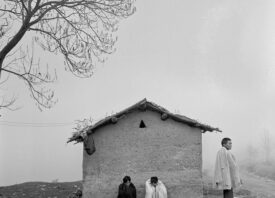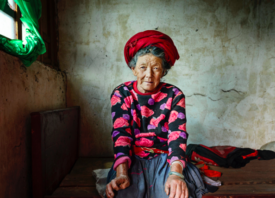Search this site
Cinematic Photos Influenced by Traditional Chinese Aesthetics Explore Fictitious Memories
Youjia Qu (BFA 2015) is a Chinese photographer and a senior in Photography at the Rhode Island School of Design. With a background in cinematography from the Beijing Film Academy, Qu’s cinematic approach also incorporates influences from traditional Chinese aesthetics. His series Yamakawa recreates scenes from the Minguo period in Chinese history, during which 20 million people moved away from their hometowns. The results are somber, poetic images illustrating the massive displacement between 1912 and 1949 that shapes the backdrop for modern life in China.
Qu explains that Yamakawa is a Japanese word originating in ancient Chinese. Meaning “mountains and waters”, together, it forms the the most important concept in Chinese philosophy. Mountains, the male element, serve as a symbol of eternity and permanence, while the feminine element water is constantly moving and changeable, signifying instability and the unforeseeable. With this concept as a backdrop, Qu’s series sketches out fictitious “common memories” in Minguo history through elaborately staged photographs that involve years of planning and hundreds of people.
Qu’s photographs, which originate from highly detailed drawings, appear at once as paintings or film stills, fraught with imagined narrative. The lost, glassy gazes of his subjects suggest a disconnect with their surroundings, a sort of helplessness as they are caught in the flow of time. Through Qu’s unique perspective growing up in China, he creates an imaginary portrait of a collective history that simultaneously ties back into Chinese philosophy.
“In this project, I consider the idea of movement as a river,” he writes. “It is constantly changing, flowing forcefully. The spirits of the people in motion become mountains, symbolizing the rigid beliefs of their diverse backgrounds. There’s also the idea of the shore symbolizing destiny, but rivers aren’t stopped by the shore – they run into the ocean, and become part of an endless cycle.”









All images © Youjia Qu
This post was contributed by photographer Acacia Johnson and her student photo blog, Onward Forward.





